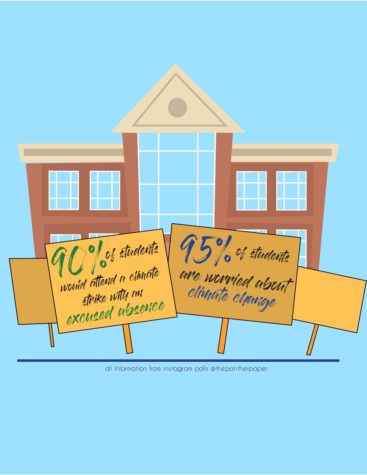Does Being Vegan Actually Help the Environment?
May 2, 2017
Since late 2014, the vegan community has risen in ranks, expanding their platforms across all multimedia outlets. Veganism, the omission of animal products from one’s diet, owes its success to far more than its online presence; the growing hole in the ozone layer and the disintegration of the Great Barrier Reef may have contributed to the hype.
The masses continue to question whether eliminating all animal-derived foods (meat, eggs, milk, etc.) actually benefits the environment. In the past, veganism was interpreted as a measley fad, often bringing about a feeling of inferiority among those who denounced the practice. Environmental motives appeared as a mask to hide a seemingly unnecessary transition from meat and dairy (a diet we have grown to accept with open arms) to no animal-based foods. Veganism, despite misconceptions and rumors, continues to alleviate some of the damage done onto the Earth.
Upon analysis, lettuce emits nearly as much gas as beef, but the two remain different in the process by which such produce is cultivated. Do not underestimate the acres of land and gallons of water it takes to maintain a single factory farm. The meat and dairy industry alone consumes an entire third of the Earth’s clean water supply, according to “Time Magazine.” The same study also found that nearly 40 percent of the all land surface is occupied by animal agriculture.
In addition to the depletion of our Earth’s resources, the livestock on these lands only produce enough meat to feed a miniscule fraction of the world population. Over 70 percent of grain grown on Earth is used to feed livestock on factory farms while 16 pounds of grain yield only a single pound of meat. The heavy amounts of food that these animals consume is enough to sustain the caloric needs of nearly 8.7 billion people–last time I checked, there were only about 7.5 billion people on Earth.
According to information compiled by “Time Magazine”, factory farms account for 75 percent of the global emissions stemming from cattle cultivation and 56 percent of the global emissions from the cultivation of poultry and pigs. These gas emissions along with the methane released by the livestock have become the primary contributor to the rising temperatures across the globe. The capture and consumption of fish and shellfish also entail certain ramifications: producing nearly 30 pounds of greenhouse gas emissions for every thousand calories eaten. The consequences of meat and dairy consumption are daunting. The adoption of a vegan diet would presumably reverse, or at least downsize, these effects.
Picturing environmental progression on such a grand scale may seem like a too-big-to-imagine accomplishment from the viewpoint of a single individual; many tend to forget the greater effort that goes into promoting veganism. As the movement continues to rise in numbers, the damage done to our planet continues to lessen, ultimately dimming the threat of total global deterioration.










